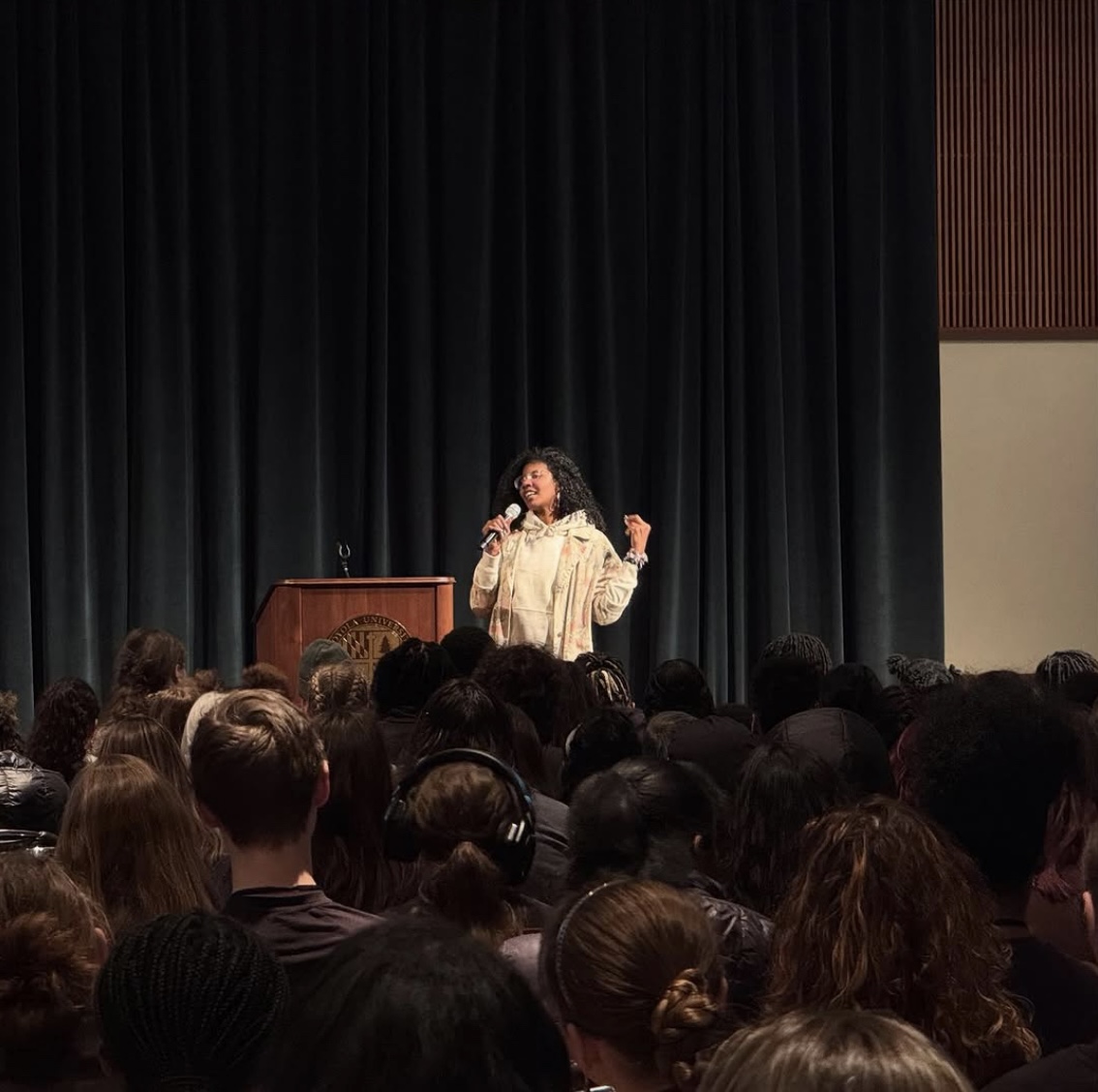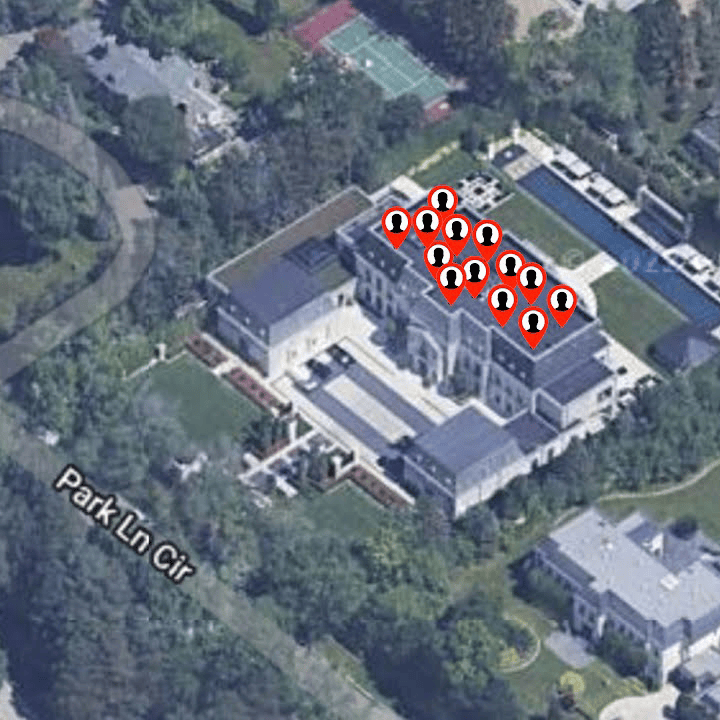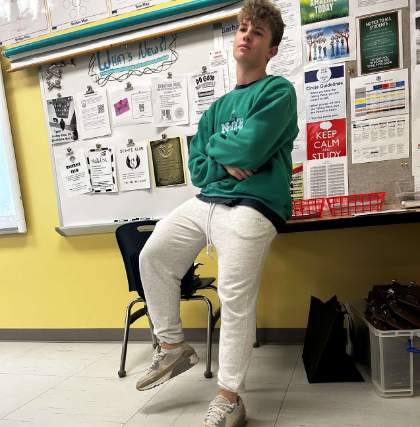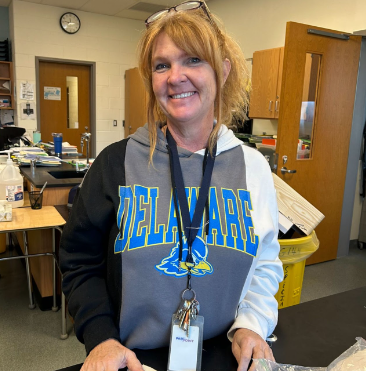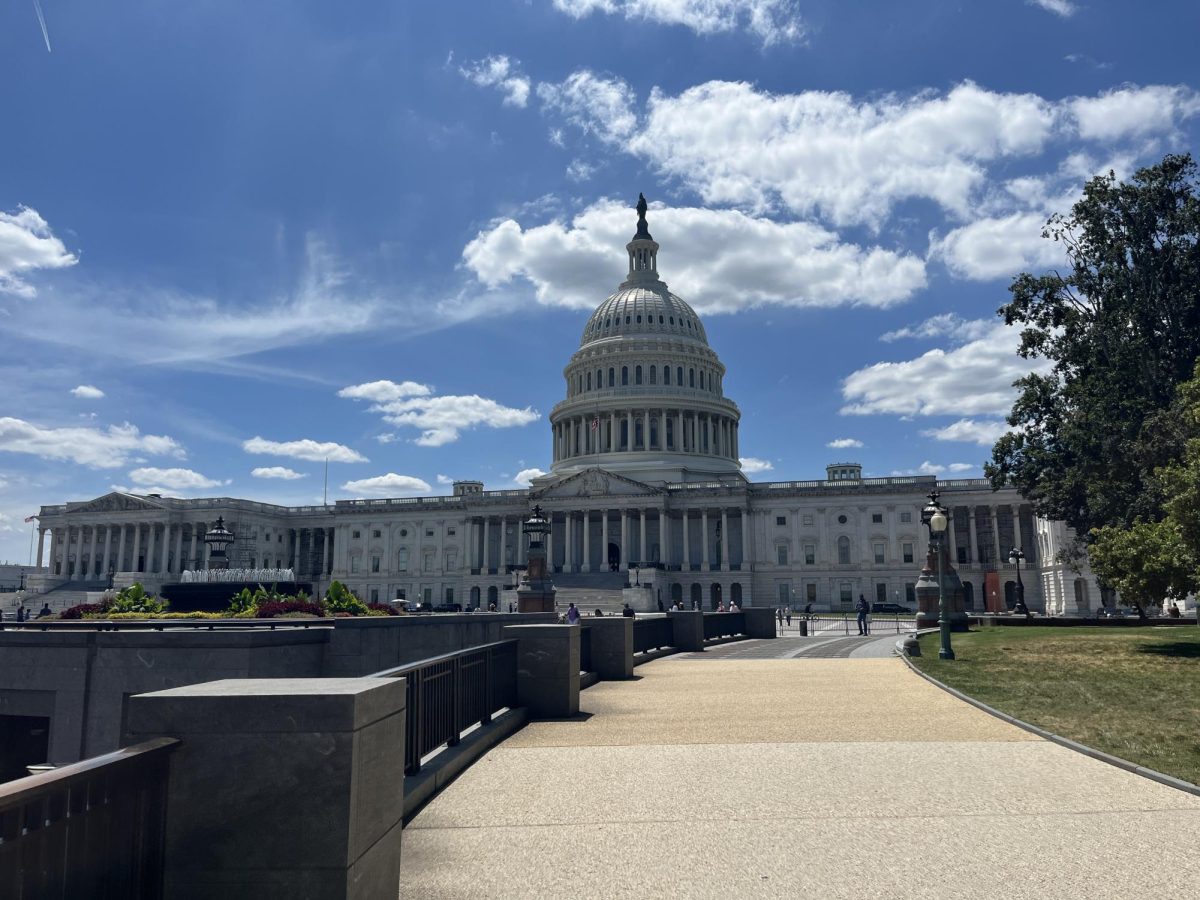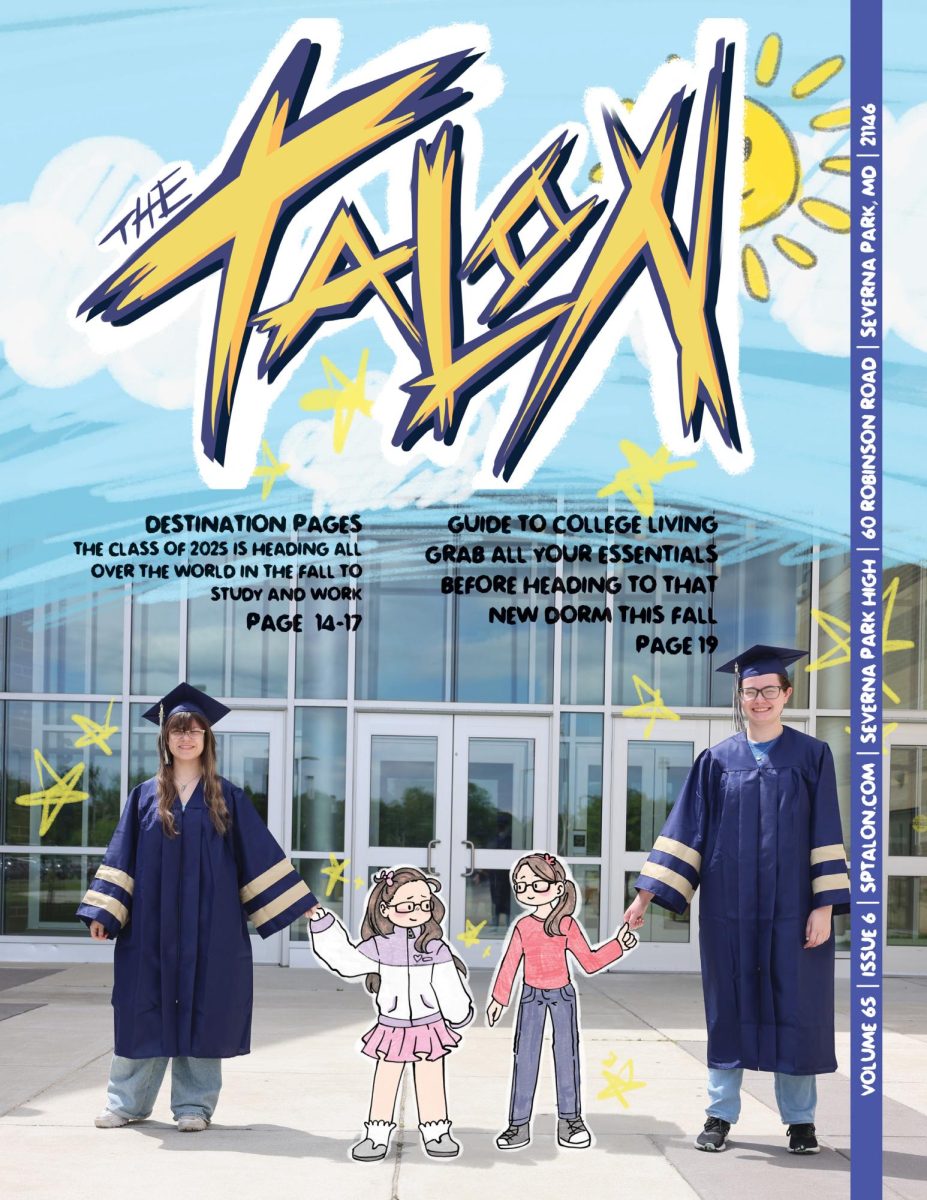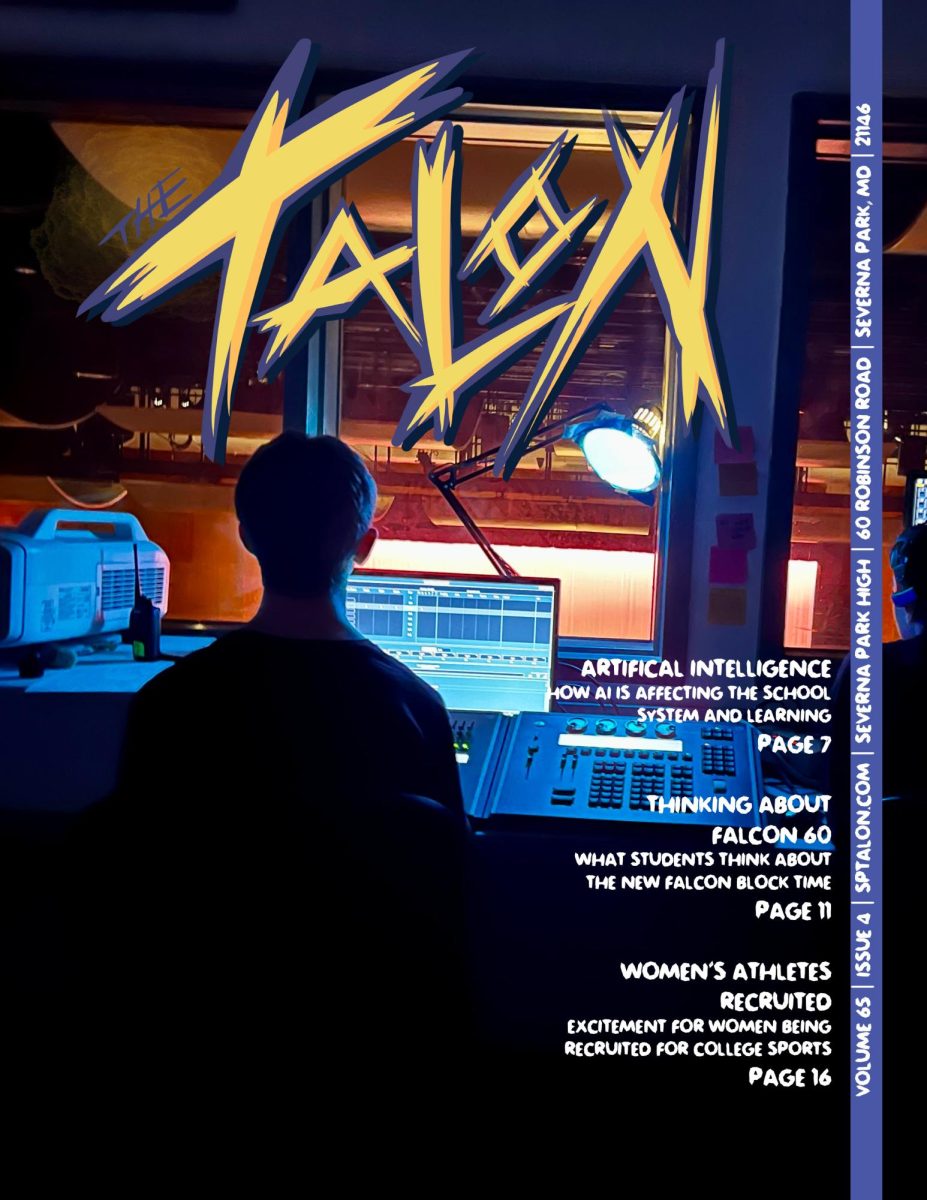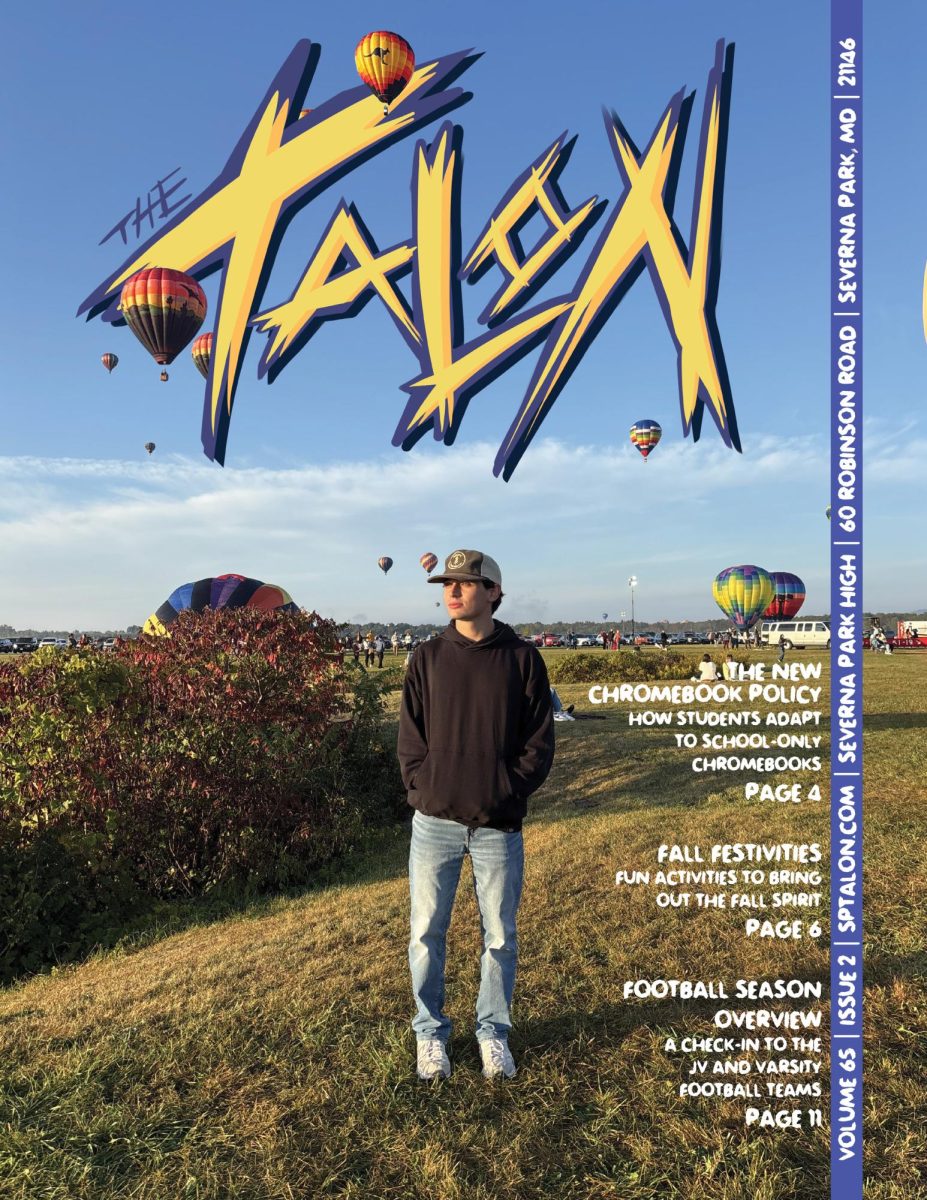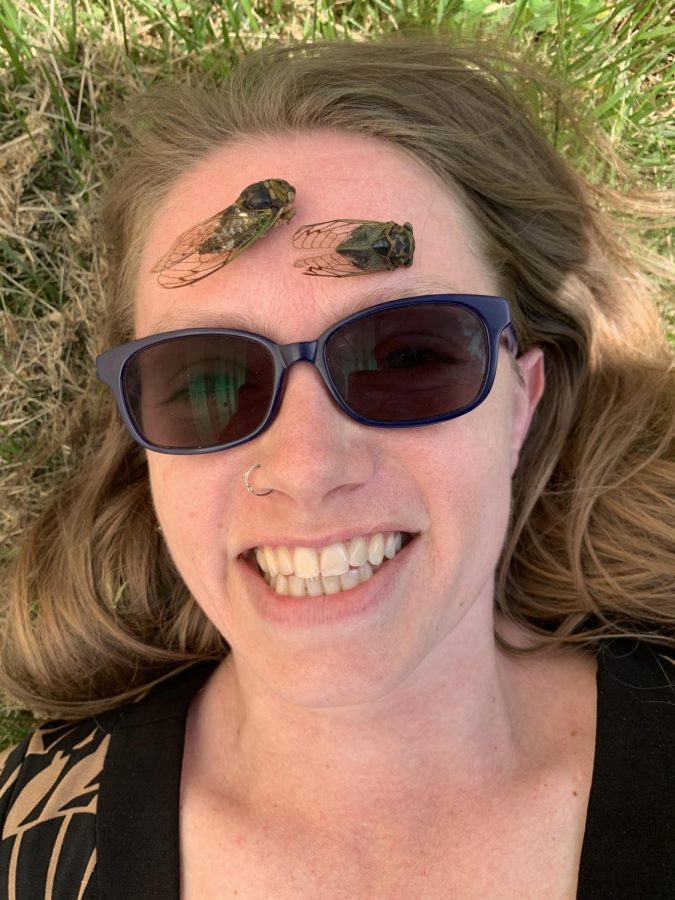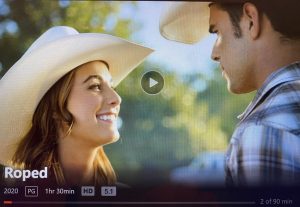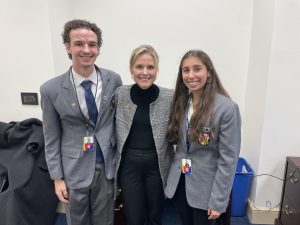The cicadas are Back After 17 Years
The SPHS biology teacher, Ms. Mossa, is very excited to see the insects after their 17 year period underground.
Ms. Mossa enjoys collecting things in nature like insects, rocks and fossils. In this picture she is posing with two cicadas from her collection. This spring Mossa said she plans on collecting as many cicadas as possible.
May 20, 2021
After 17 years under the ground, the fascinating creatures have come out to reproduce until they die; and one of the science instructors at SPHS cannot wait. Ms. Mossa said she is from New York, where they do not not have cicadas, so the stories of them emerging fascinated her.
There are many different kinds of cicadas. Some groups emerge every 13 years, some emerge every 17 years and you’ll always see a few random ones each year. “I finally got to see the 13 year ones in Virginia a few years ago and have collected them ever since,” science teacher. Mossa said, “If you take the time to look at them, they are very unique, with different colours and patterns on their exoskeletons.” One of the things she enjoys most about cicadas is seeing their diversity.
“I also have an app for taking pictures of them, then it tags your location,” Mossa said, “So it’s a really large-scale data collection, which I enjoy being part of.” She has plans on collecting as many cicadas as possible this year and wants to try at least one cicada recipe. Although, she has to work on her preservation techniques.
“My high school bio teacher required us to make an insect collect, and he would be disappointed that I am not preserving my cicadas and storing them properly,” Mossa said, “Because they will break down over time and start to lose legs and wings, but that happens faster if you don’t take care of them.” The cicadas life span is about four to six weeks above ground because they eat and sleep underground and are only out to molt and mate.
“They also have a really unique life cycle and make for great discussion about how a species evolves,” Mossa said. She said she feels like so many people don’t actually know that much about cicadas and just write them off as ‘gross,’ so she likes to talk about them in class to dispel that idea as much as she can. It could be the insects’ large size or the loud buzzing noise their wings make that gives people that impression.
However, cicadas are not the only part of nature Mossa finds beautiful. Sunrises and rocks, even though they are not biology related, are some of her favorites. Mossa believes her job as a science teacher aligns with her personal interests because she is the person who points out all the animals others might miss while hiking. She also has many biology-related tattoos, so it is very much a part of her. Mossa said she just likes being surprised by the diversity that can exist within one species and how we don’t really notice it all that much… we are so focused on humans that we always notice individual traits, but the same thing occurs in all species, and we just gloss over it.




